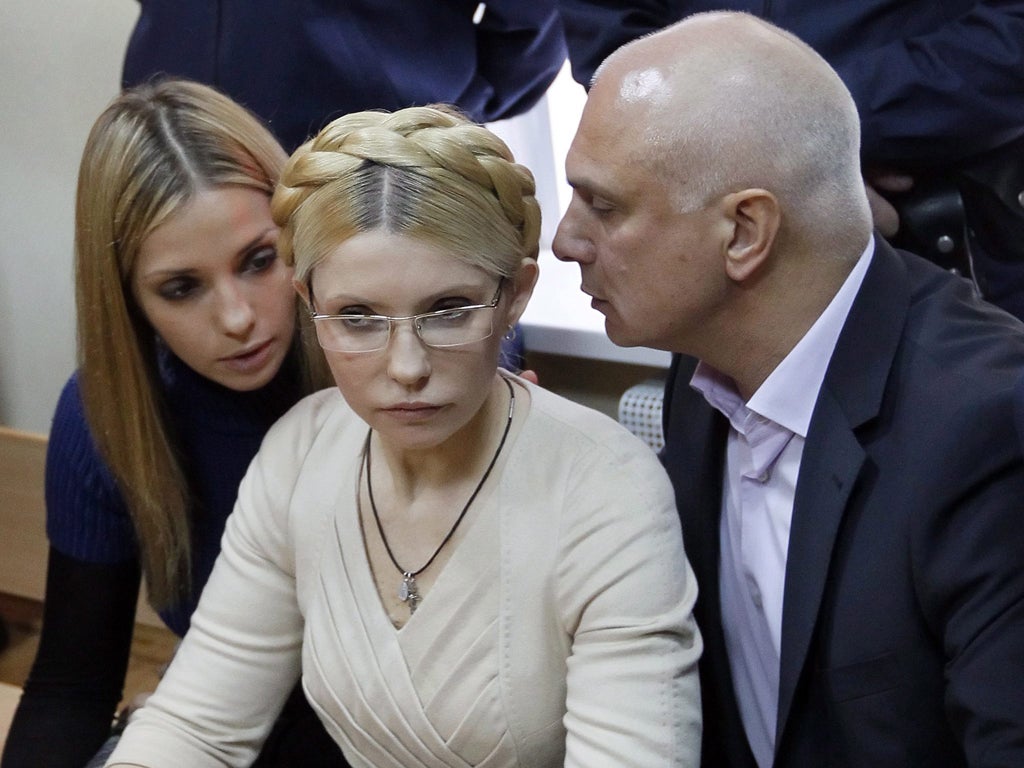Tymoshenko's husband flees amid claims of persecution
Meanwhile his wife, Ukraine's ex-Prime Minister, faces 24-hour surveillance in jail

Your support helps us to tell the story
From reproductive rights to climate change to Big Tech, The Independent is on the ground when the story is developing. Whether it's investigating the financials of Elon Musk's pro-Trump PAC or producing our latest documentary, 'The A Word', which shines a light on the American women fighting for reproductive rights, we know how important it is to parse out the facts from the messaging.
At such a critical moment in US history, we need reporters on the ground. Your donation allows us to keep sending journalists to speak to both sides of the story.
The Independent is trusted by Americans across the entire political spectrum. And unlike many other quality news outlets, we choose not to lock Americans out of our reporting and analysis with paywalls. We believe quality journalism should be available to everyone, paid for by those who can afford it.
Your support makes all the difference.The husband of former Ukraine prime minister Yulia Tymoshenko was given political asylum in the Czech Republic yesterday after arguing he was being persecuted as part of a government vendetta against his wife.
Oleksandr Tymoshenko, 51, fled the Ukraine in December after Mrs Tymoshenko was jailed for seven years for abuse of office in a trial condemned by the West as politically motivated.
The decision is set to further worsen diplomatic relations between the two countries, which have been strained since two Czech diplomats were expelled last year for alleged espionage after asylum was granted to another Tymoshenko ally, Bohdan Danylyshyn.
The Czech Republic has supported victims of human rights abuses since it escaped the Soviet block in the 1989 "Velvet Revolution" in a policy first instigated during the presidency of Vaclav Havel, who died last month. Mrs Tymoshenko's Fatherland party said her husband sought asylum as he was being unfairly targeted by a criminal probe into her business activities when she owned Ukraine's main energy firm.
"This response by Oleksandr Tymoshenko is in response to amoral attempts to pressure and torment Yulia Tymoshenko by persecuting her loved ones and family," it said. "[The government] has chosen the dirtiest tactic: to break Yulia Tymoshenko by pressuring members of her family. His decision... was dictated by the desire to deprive the regime of mechanisms to pressure the leader of our party."
Mrs Tymoshenko's daughter, Eugenia, 31, last month told The Independent how she believed her phone was being tapped and that she was being followed by Ukraine's security services. She is still in Kiev but a family lawyer said she would also consider seeking asylum if the authorities sought to pressure her, too.
Mrs Tymoshenko, heroine of the 2004 pro-Western Orange Revolution, says her incarceration was motivated by a desire to prevent her standing in elections. Recently she was moved to a remote prison colony in the city of Kharkiv where she is being held under 24-hour camera surveillance in a cell with the overhead lights always on.
In 2001, she and her husband were jailed during a stand-off with the country's then-president on charges of corruption and embezzlement. The y were exonerated but the case was recently reopened, raising the prospect of Mr Tymoshenko being jailed.
The couple married in 1979 after Mr Tymoshenko, the son of a former communist party official, reputedly rang the then 19-year-old Yulia's phone by accident and they fell in love when she subsequently agreed to meet him. Their daughter was born the following year.
A Ukraine government spokesman said there had been no reason for Mr Tymoshenko to claim asylum in the Czech Republic.
"The principles of the supremacy of the law and a respect for the basic human rights and freedoms are observed in the Ukraine," the government official insisted.
Join our commenting forum
Join thought-provoking conversations, follow other Independent readers and see their replies
Comments